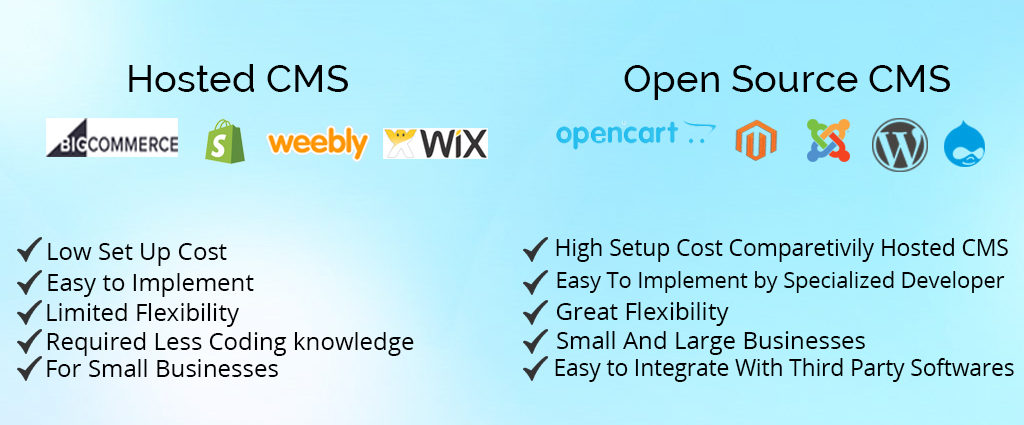With the increasing popularity of e-commerce, more and more businesses are taking their operations online in order to target the numerous online customers who are looking for products or services they sell. However, for these businesses to be effective, they need to be able to establish a very rich online presence, provide unique and original content, showcase their products and services, offer a great customer experience, and engage the potential customers so that they can convert them into sales. All these tasks are carried out with one important tool, an e-commerce platform, which is basically software that allows businesses to create an online store for selling their products or services.
Types of e-commerce platforms
With more and more businesses taking their operations online, a host of e-commerce platforms have emerged, which can make choosing the best one to use very confusing, not to mention hard. Simply said, when you are starting an e-commerce website, there are two types of platforms that are available for you:
- Managed e-commerce platforms, which are commonly known as pre-built or hosted e-commerce platforms
- Content Management Systems (CMS)
If you opt for the managed e-commerce platform, your website will be hosted on a server that you do not own or have access to. You will have to choose a company that offers the service, and pay for it either on a monthly or an annual basis. The company will, however, set up your online store, and all you will need to do is upload your content, products, and services that you are offering.
On the other hand, a Content Management System is an open-source e-commerce platform, and unlike the Managed platforms, your e-commerce website will be hosted on your own server. This means that you have to purchase your own server and set up your online store yourself (most people will hire a website development company to do this part of them).
What is the benefit of each type of e-commerce platform
Before you make a choice between a managed e-commerce platform and a content management system when you are having your business website built, you need to understand the benefits that each of the solution offers you, and then decide which option is the best. Below is a look at the benefits of both solutions:
Benefits of a managed e-commerce platform
- Fewer development needs
One of the best benefits of hosted e-commerce platforms is that they require very little development when setting up your store. Since the platforms are already pre-built, there will be very little web development taking place, which means that you can set up your website without any help, even if you do not have programming/development experience.
- It is easy to manage
Managing an online store that is built using a hosted e-commerce platform is very easy. The back-end of the platforms is very easy to use, and it is designed for people with limited technical knowledge. In addition, since you are “renting” the platform from a company that offers this service, they will have very capable technical teams who are ready to help you in case there is a problem.
Benefits of content management systems
- They offer more functionality
Content management systems are open-source platforms, and thus they support more functionality – plugins, add-ons, themes, and advanced features – that cannot be found in hosted platforms.
- Better customization
Another benefit of the open-source solution offered by Content Management Systems is that they allow you to modify the features, thus allowing you to build a customized online store that is unique. This helps your business to stand out from the competition.
- Ownership of your online store
When using a CMS-based e-commerce website, you purchase/provide the server used to host your website, as opposed to “renting” one. Therefore, you have complete ownership of your online store, and you can do with it as you please.
- Can support large online stores
With content management systems supporting more features and functionalities, you can add as many products/services or classifications to your online store as you want. Therefore, you can be able to host a large online store with a very sophisticated e-commerce website with a lot of ease.
Conclusion
Both hosted e-commerce platforms and CMS platforms come with their own benefits and disadvantages, which can make choosing between both very confusing. However, with the above information, you can be able to decide the most suitable platform for your online business based on your business needs.

